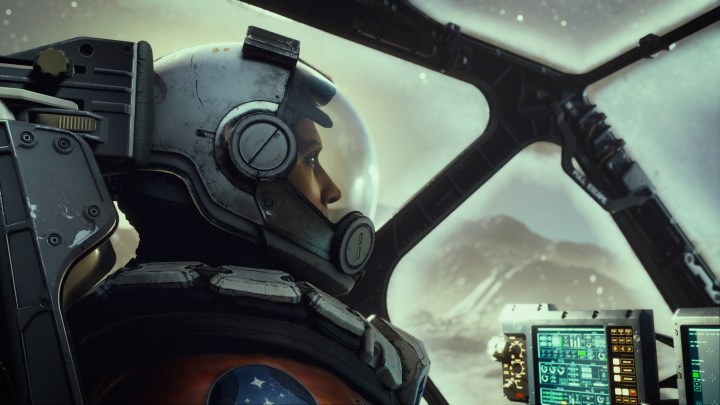Like most other activities, game development slowed to a halt as COVID-19 burst into our lives in 2020. Rapid shifts in workplace environments and safety mandates disrupted many a game’s development. Games still came out that year, but new releases were limited to games that had already been announced for 2020 and were very close to completion.
It wasn’t until this year that the industry really felt the effect of the 2020 slowdown. Games were delayed across the board and releases were slower than usual, both signs of an industry that was struggling to find a model that worked for developers and players alike. That doesn’t meant that nothing major came out in 2021. Titles like Halo Infinite, Ratchet & Clank: Rift Apart, and Metroid Dread hit storefronts, both physical and digital. But the final release list was much slimmer than anticipated.
Instead, this year saw a variety of long-term announcements and teases for games that won’t be arriving for quite a while. E3 gave us a look at the long-awaited Elden Ring, which won’t be launching until February 2022. Fans heard very little about “The Sequel to The Legend of Zelda: Breath of the Wild,” which still has neither a release date nor a proper title. As exciting as it was to see the industry attempt to wake up from a long COVID hibernation, many of gaming’s most anticipated titles are either slated for years down the road or have been delayed past their original release dates. It’s happened often enough over the past 12 months to make me say that 2021’s biggest game was, without a doubt, the waiting game.

Coming in 2022
In 2021, gamers heard one particular phrase over and over: “Coming in 2022.” It was used to describe highly anticipated games like Elden Ring, which we know quite a bit about, as well as titles like Bethesda’s Starfield, which we don’t. Bethesda hit a new low by sharing that fans wouldn’t get more information about Starfield until the summer of 2022, essentially announcing an announcement in an attempt to build hype.
The truth is that it’s hard to hype a game that players don’t know anything about. Hype is supposed to grow organically when titles get trailers, gameplay reveals, and other background information, making fans anticipate its launch. We’ve seen gameplay and lore trailers for Elden Ring already, as its release date isn’t that far in the future. On the other hand, we’ve seen almost nothing for Starfield, making it tricky to really anticipate it beyond the excitement that comes from a well-known studio’s involvement.

These sorts of fluff trailers and announcements of announcements dominated 2021. While many studios promised to show more substantial content in 2022, a taste of what is to come wasn’t enough to satiate many gamers’ appetites. I got the sense that many were trying to smooth over a slow 2021 by talking up future projects. While it’s fun at first, it doesn’t take long for the drip-feed of information to become tiresome.
Facing delays
Games with 2022 release dates weren’t the only titles that made fans wait this year. A slew of other games were delayed shortly after they received announcements or trailers. Fans had to wait two extra months for Riders Republic. Ubisoft also pushed back several of its own titles, including Tom Clancy’s The Division Heartland and Prince of Persia: The Sands of Time, the latter of which is still indefinitely delayed. Two of Activision Blizzard’s biggest upcoming games, Overwatch 2 and Diablo 4, were delayed in an announcement on November 2, likely due to the company’s harassment and work environment scandal. According to rumors, players might not see Diablo 4 until 2023.
While it may be easy to simply tell developers to fix their issues so that games won’t need to be delayed, it’s a lot more complicated than that. Game development is a complex web of interactions that relies on many disparate pipelines of content and business. If even one is affected, the whole game is affected. When something like a pandemic comes along, development can grind to a halt, forcing developers and publishers to disappoint fans with announcements of delays.
Still, it’s arguable that a delay announcement is better than, say, radio silence. We still haven’t heard anything about The Elder Scrolls VI since its seconds-long teaser shot at E3 in 2018. Details on Breath of the Wild 2 are similarly scarce, despite the game getting a big trailer at this year’s E3. We know what it looks like, but much of the game is still a mystery — including its actual release date.

No matter which way you slice it, 2021 was a year marked mainly by delays and long-term announcements. Part of the fun of a new game is the anticipation that leads up to its release, but some of these games aren’t coming out for so long that the hype simply ebbs with time. Even though I definitely enjoyed my share of newly released games this year, I’m still more excited for future releases than anything. Gaming is an industry built on anticipation and excitement, but with delays mounting and announcements coming for games farther and farther in the future, how long will developers and publishers be able to hold on to that anticipation?



